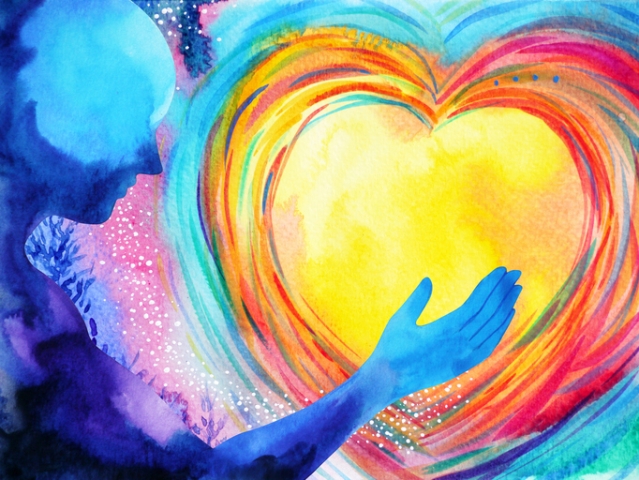Thoughtful Thursday: Self-Compassion


What is self-compassion
Compassion, in general, involves being able to have understanding, acceptance, and empathy toward someone who is struggling.
Self-compassion is when this same compassion is directed towards ourselves.
Self-compassion vs self-esteem
Self-compassion can be contrasted with self-esteem:
- Self-esteem = having a positive evaluation of yourself.
- Self-compassion = relating to yourself in an understanding and accepting way.
Self-esteem depends on things going well, but self-compassion can always be there even if things aren’t going well (e.g. suffering, imperfection, failure).
Three elements of self-compassion
Kristen Neff, a leading researcher on self-compassion, describes it in terms of three elements:
- Self-kindness: being gentle and understanding toward yourself rather than harshly critical or judgmental
- Recognizing common humanity: understanding that suffering and imperfection are universal experiences (even if the specifics may vary)
- Mindfulness: being able to be aware of painful experiences as they are, without either denying they exist or completely self-identifying with them
Benefits of self-compassion: improved well-being
Research has shown a positive correlation between self-compassion and psychological well-being:
- More happiness
- More life satisfaction
- More social connectedness
- More emotional intelligence
- Less anxiety
- Less depression
- Less shame
- Less fear of failure
- Less likely to be in unhealthy relationships
Benefits of self-compassion: recovery from trauma
Many people with personality disorders also suffer from post-traumatic stress, and self-compassion can help recover from trauma.
If someone is low in self-compassion, much of the suffering associated with trauma might feel more threatening or be harder to deal with: “I’m not supposed to be weak and have all of this suffering; there’s something wrong with me for feeling this way.”
Self-compassion involves being able to look at pain and see it as something worthy of care regardless of the cause—even if you feel shame, guilt, self-anger, or self-blame:
- Your feelings are real
- Your feelings have a reason for being there
- You are allowed to feel what you are feeling
- It matters if you are hurting
Benefits of self-compassion: improved productivity
There is a common attitude that self-compassion is a form of “self-pity” and should be avoided since it involves being excessively indulgent toward oneself when what’s needed is to “power through”.
However, research has actually shown that people who are more self-compassionate are also more productive and motivated. One possible explanation for this is that people who are self-compassionate are able to mindfully notice when they are not feeling their best and take time for themselves to recover so they can come back refreshed and energized.
In contrast, if someone is low in self-compassion and they aren’t feeling well, they might respond by denying that any problem exists, pushing themselves to their limits until they burn out—and then being angry and critical toward themselves for experiencing suffering or lack of motivation when this happens.
In my personal experience, there are some problems that can’t be solved by “trying harder”. Paradoxically, sometimes reducing effort can cause changes to happen more quickly and easily.
Benefits of self-compassion: more compassion toward others
Neff’s concept of self-compassion was inspired by her experiences with Buddhist loving-kindness meditation. One of the principles of this practice is that compassion for oneself is just as important as compassion for other people.
Suffering matters regardless of who is experiencing it or why they are experiencing it. Self-compassion and other-compassion are closely connected:
- If we judge ourselves, we are more likely to judge others who are in the same situation
- Likewise, if we judge others, we are more likely to judge ourselves if and when we find ourselves in the same situation
Tips for practicing self-compassion
- Treat yourself as you would a small child: Imagine how a child might feel and what they would want (e.g. maybe just to be hugged 💜). You can also imagine a good friend or a pet.
- Practice mindfulness: If you’re criticizing yourself, just be aware of it and try to have compassion for that critical voice since it has positive intentions (e.g. to protect you, to motivate you).
- Remember you aren’t alone: Whatever experience you’re having now is probably also happening for millions of other people in the world—maybe not all of the exact details but definitely the emotions and high-level picture. Everybody is fumbling around trying their best.
- Allow yourself to exist: It’s okay to be whatever you are.
- Comfort your body: Care for yourself physically 💜 Eat something nourishing, lie down and rest, massage your neck, take a walk, etc.
- Write a supportive letter to yourself: Describe a painful situation, acknowledge your feelings, and respond in an encouraging way as if you were talking to a close friend.
- Find a supportive therapist or coach: It can be powerful and transformative just to have someone else see you, empathize. and care. (This is the principle behind the active listening that 7 Cups listeners are trained to practice.)
Reflection
How do you practice self-compassion?
Sources:
https://www.goodtherapy.org/learn-about-therapy/issues/self-compassion
https://self-compassion.org/why-self-compassion-is-healthier-than-self-esteem/
https://www.umpqua.edu/hannas-helpful-hints/2357-self-compassion
https://greatergood.berkeley.edu/article/item/try_selfcompassion
https://www.health.harvard.edu/healthbeat/the-power-of-self-compassion

This is good.
How do you practice self-compassion? I usually remind or talk myself out like a good friend, whenever I talk myself down.
Thanks for writing this!
@vanillaapple
Glad you liked it. I like that approach you've mentioned. Like if you were putting yourself down and a good friend saw you doing that, they'd probably be like, "Hey you're not so bad--I like you and whatever you're unhappy with we can talk through it" as opposed to piling on more negativity. 😊

@QuietMagic I think I have fair self compassion now, that took time to build up. Self esteem is constant low. I don’t remember exactly what it said above, but basically like it depends what is going on around you. Things around me have always been unstable. Sometimes when my self esteem takes super dips, self compassion also takes a hit. I have come to the conclusion that this is a form of punishment that gives me toxic relief. After a few days, I pick myself back up and start with my self compassion base again, and I continue chugging along until the next fall.
